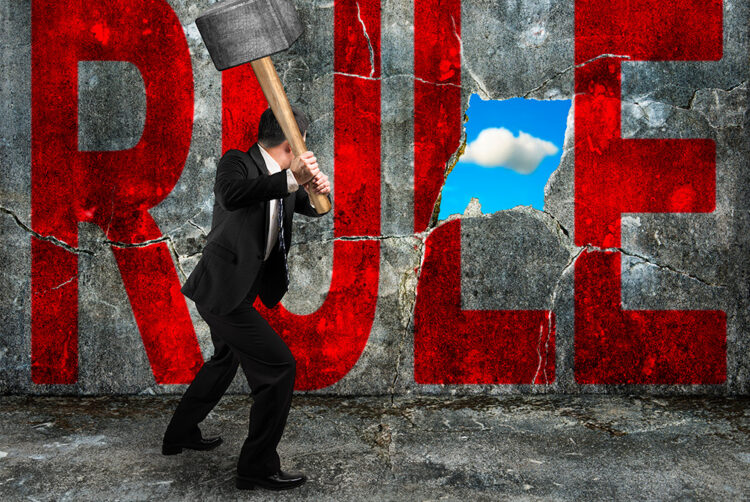Giving ourselves permission to be creative is business-critical

Opinion
Media talking about ‘creative’ is too narrow in ambition. It’s creativity that will become the most priceless commodity in our industry.
Even our Prime Minister can’t help but chime in on AI.
As Rishi Sunak flirted with Elon Musk at the UK’s inaugural AI Safety Summit, did he have one flickering, calculating eye on following Nick Clegg’s trailblazing path as a “fixer” to the tech giants? Knowing Rishi, he probably asked Chat GPT for career advice!
While important, the wider conversation AI also provides an insight into what’s happening in our world of media. We are increasingly talking up creative and its continued importance.
But simply talking about creative is too narrow in ambition.
It’s creativity that will become the most priceless commodity in our industry.
The same media playbook is out of date
Media exists between three worlds: of “business”, of “science” and of “ideas”.
The current narrative is that agencies must be more like consultancies: following the paths of McKinsey or Bain. Yet are these the business partners that we should aspire to be?
Just watch John Oliver’s recent evisceration of the consultants. He states; “Essentially, McKinsey is a firm that projects a huge amount of confidence to sell a frequently unremarkable product at sky-high prices, making them truly the Salt Bae of companies”.
Sure, bringing a consultancy might improve the share price by uncovering operational efficiencies, but do they create real, long-term value? Can you name me one legendary consultant? And, in the media sector, surely AI will soon make the optimisations that were the bread and butter of agencies redundant?
To be great business partners, we firstly need to understand what underpins the most successful businesses.
When we take a close look, we find it is creativity, rather than financial savvy, that unlocks sustained value.
Taking risks for longer-term gains
Seven out of the 10 largest companies in the world have been built around disruptive innovation.
The world’s business behemoths have proven the power of creativity because they have not followed the rules of standard corporate practice. Their founders are creative thinkers rather than businesspeople in the traditional sense.
From Apple’s cash reserves of $166bn, through to Google and Meta not giving shareholders voting rights — they focus on the longer term, on the creation of value, of being able to take educated and creative risks.
In the media industry we still drone on about “marginal gains”. But it’s nearly 2024 and, with a world in political and technological upheaval, does talk about the ‘margins’ really cut it anymore?
Whether you are a McKinsey or a media agency, simply trotting out the same dog-eared playbook ain’t going to cut it.
Being bigger, bolder and more valuable
Technology will level the playing field of our industry: it will make in-housing easier for our clients and standing-out harder.
What we offer as agencies has to be bigger, bolder and more valuable. That final 10% of service will become the differentiator, strategy, ideas, people and creativity.
In one of the most significant recent papers on AI (Navigating the Jagged Technological Frontier, 2023), the findings state that when a group of BCG consultants using AI completed a set of tasks centered around creativity “there is a marked reduction in variability…… it might lead to more homogenised outputs” vs. a control group not using AI.
Those findings are an important reminder.
To thrive in the age of AI, we need a marked increase in variability, not a decrease, that’s still our domain. Creative, strategic thinking remains outside of the “jagged edge” of the capabilities of AI.
Inside the “jagged edge,” it is a different story.
If you ask an AI tool for a generic business plan, a language translation, or help with programming — the results are incredible. In the paper, AI-assisted consultants outperformed those without AI by up to 40% on those AI-friendly jobs.
But try to ask AI for something deeper, “outside the edge” — such as the assimilation of stakeholder interviews and the formulation of a decisive strategic recommendation, the consultants using the AI underperformed the control by 19%.
We aren’t redundant quite yet.
Using AI strategically
To create that culture that fosters creative strategic thinking, agencies need to embrace these technologies, without ending up relying on them.
That means ripping up the current playbooks and building an operating model that is created in the age of automation, not disrupted by it. That means embracing new skills, new workflows, relentless efficiency and the strategic application of AI at its heart.
By removing repetitive tasks and redundancies, and by using AI as a co-pilot, people can focus on getting deeper under the skin of their client’s business — understanding their challenges and opportunities on a much more meaningful level.
This is required more than ever, as modern marketing is both increasing in importance and spiralling in complexity.
Respecting and inspiring people
We need the time and the expertise to think bigger and more creatively, to solve for next year, not just tomorrow.
An incredible example of this is the Cannes Lion award-winning Euroframa app, developed by Denstu creative. It empowered people with Parkinson’s to navigate social media by only using their facial expressions. This type of thinking, of creative innovation, will not be replaced by AI in the foreseeable future and is what we should all be striving for.
To foster a culture that deliver business-changing ideas that attracts the best talent, we not only need unlock time through technology, but we must both respect and inspire people.
Investing in employee value propositions as radical as the outwardly facing narratives that we promote — with shared ownership schemes, incredible training and diverse career pathways in drum-step with technological innovation.
And, most importantly we must value and reward creativity like our very existence depends on it.
If we succeed, clients will be inspired and excited to work with us. Wouldn’t that be a nice change?

Emil Bielski is managing director of Croud




